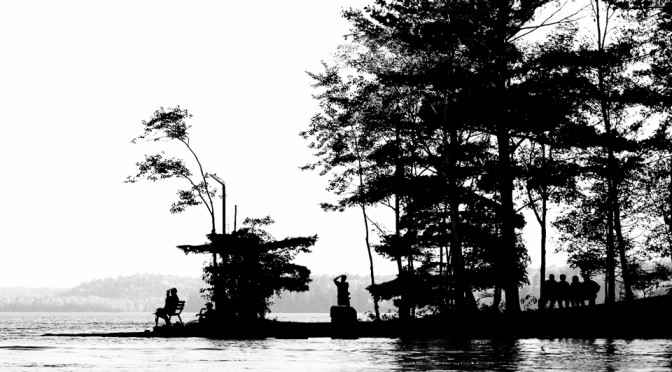See other posts in the series: P1 P3 P4 P5
*****
A satisfying read is dependent upon two critical components: what is read and when. Up the book comes, then down the book goes if the timing isn’t right.
Released in 2011, it’s taken two years for Theresa Kishkan’s memoir, Mnemonic: A Book of Trees, to find its way to me. Writer and reader Kerry Clare acted as connector via her engaging website picklemethis.com (and its big sister, 49th Shelf). Author discovered, I linked into Theresa’s site and ordered two books, Mnemonic and The Age of Water Lilies, a novel. We began an email correspondence.
While there is a glut of knowledge in the world, there is a dearth of wisdom. I read Mnemonic voraciously. I pondered, chewed, deconstructed, and reconstituted each piece, slowing down to a crawl to savour the words. You see, I am shifting gears and am filled to overflowing with heavyweight existential questions that demand a certain level of engagement and tenacity. I need answers.
The Mnemonic essays are both fearlessly personal and universally approachable, shaped by the conceit of the tree species she has known and loved. They are stories set locally and abroad, which emanate a profound appreciation of the influence of place and home. They balance the intellectual with the physical, book-learning with adventuring, producing the action-oriented storytelling that I favour.
Turning the pages was a bit like visiting with the ghosts of Christmas past, present and future. Our geographies correspond so closely: Duncan and Chemainus; Powell River and Texada Island; the Fraser Valley and the Fraser Canyon; Wallachin and Kamloops. These are the places of my childhood. The arbutus that grow freely near her home are my personal totems. I felt the heart-pangs as her three children grew up and moved away, as I watch my four change daily. Like a reflection in a mirror, I am helped to see: to understand what’s coming; to name what’s happened; and to examine – and absorb – who I am in this moment.
This book couldn’t have come at a better time.
**********
The Kishkan Oracle.
I would offer five questions by email, one at a time, and Theresa would respond as she saw fit. And she did: beautifully, expressively, generously. Here is our discussion of Mnemonic, and a life thoughtfully lived, over five days and five posts.
**********
QUESTION #2: From a content (and not a structural) perspective, what did you leave out of the book? Do you have topics that you’re not ready to write about yet? That are lurking but not fully-formed?
TK: I’ve been thinking about this question and for some reason I see laundry. In my life, I’ve done a lot of laundry and there’s not much in the book, is there? I don’t mean this facetiously but perhaps a little wistfully. I relocated myself in those groves of memory, of botany, of natural and human history and that allowed me to revisit so much of what was – is – important to me. But of course there’s so much that isn’t there. One reason for this is of course that a memoir takes a specific pathway through a life and is organized around that particular route. I wasn’t aware of consciously avoiding topics or events or leaving them out but there were places I didn’t return to, places whose trees that didn’t beckon.
Your phrase “not ready to write about yet” is very potent. The final chapter, “Populus tremuloides: Cariboo Wedding”, danced around some family issues and my editor advised me to remove some of the more contentious material.
[pullquote]She was right, I think. I trespassed on the privacy of others. Or maybe to be more accurate, I hadn’t yet worked out how I was implicated in the small fierce drama at the heart of what I wanted to write about there.[/pullquote]
“A memoir is not what happens, but the person to whom things happen,” said Virginia Woolf. Some of that drama involved my mother who was still alive when I wrote that chapter. I had a complicated but loving relationship with her, I suppose, but its foundation was shaky, volatile. I am trying to explore that in a work-in-progress, trying to be honest and fearless (again, I am not writing with a view to publishing what I write, but of course that may happen).
I believe that concentrating on specific details can often lead us to revelations about our lives and our history, coaxing or surprising us into unexpected truths. The American essayist Kathleen Norris said, “The ordinary activities I find most compatible with contemplation are walking, baking bread, and doing laundry.” There’s an essay in Phantom Limb called “Laundry” but it’s not really about the dailiness of it, the wonderful scent of cotton sheets dried in the wind. It does try to explore what it means to be a daughter though and I hope to take that exploration even further now.
